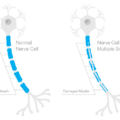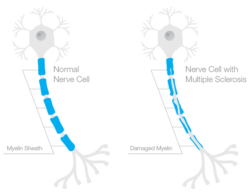Since I live in a desert and visit tropical places, I am thrilled to enjoy yet another benefit of vitamin D3: a natural tan! For many years, the sun acted as my nemesis. I was born with fair skin, blue eyes, and light-colored hair. Despite my mom’s best efforts to protect me from the sun (including lots of sunscreen lotion), our family trips to the beach usually resulted in sunburn for me. “Lobster red” burnt skin continued to plague me following direct sun exposure until I discovered the benefits of vitamin D3. Now that my levels have reached a significant level on the testing spectrum, I noticed that my skin no longer burns! In fact, for someone as light-skinned as me, I often sport a bit of a tan, at least on my arms and face. Why the dramatic change?
Scientific studies1 over the past 17 years have indicated that vitamin D3 may protect the skin from ultraviolet (UV) sunlight damage. This occurs when adequate levels of activated vitamin D3 in the skin’s cells increase the skin’s ability to withstand UV exposure. However, when UV light strikes the skin of people who are low in vitamin D3, high levels of nitric oxide, a free radical, are released in the body, causing potential DNA damage.
Thus, a natural vitamin D3 tan can only occur when your vitamin D3 levels are optimal. How do know if your vitamin levels are adequate? Get your blood tested by your healthcare practitioner (or via reputable on-line pharmacies). The name of the test is 25-hydroxy (OH) vitamin D. A number of experts believe that a healthy level of circulating vitamin D3 is between 50-80 ng/mL. Personally, my vitamin D3 level hovers around 100 ng/mL.
So, by increasing your vitamin D3 levels through supplementation, not only will you significantly improve your overall health and well-being, you also may get a great tan!
1Feldman D, Pike JW, Adams JS. Vitamin D (Third Edition), Volume II. Academic Press. 2011.
Author’s Note: This article, posted on Hormones Matter website, is the fifth in Sue Ryan’s series about vitamin D3. To read other articles about Vitamin D, click Here.
Additional information about vitamin D3’s benefits is available in Sue’s book, “Defend Your Life.” Follow Sue’s commentary on vitamin D3 and other health topics on Twitter @VitD3Sue.
Copyright ©2012 by Susan Rex Ryan
All rights reserved.
We Need Your Help
Hormones Matter needs funding now. Our research funding was cut recently and because of our commitment to independent health research and journalism unbiased by commercial interests we allow minimal advertising on the site. That means all funding must come from you, our readers. Don’t let Hormones Matter die.
Yes, I’d like to support Hormones Matter.
This story was published originally on Hormones Matter in July 2014.




